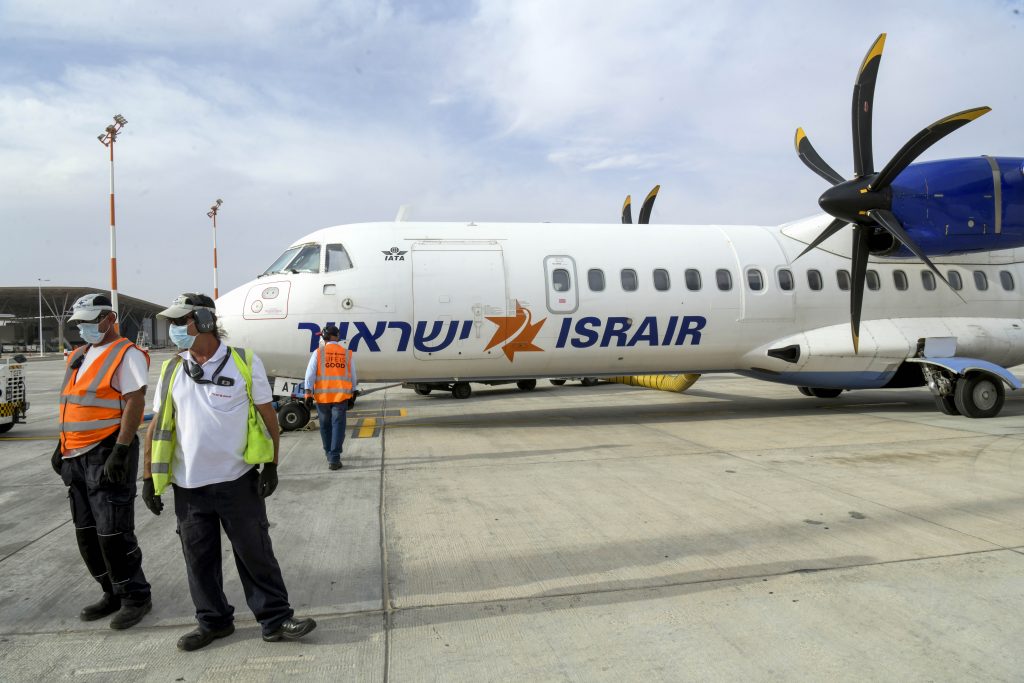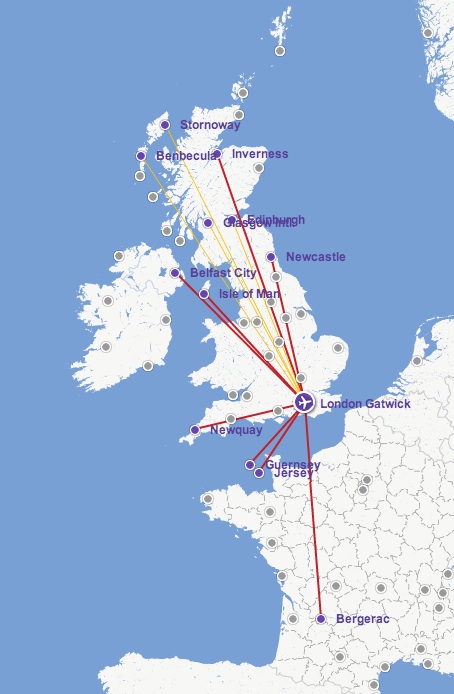Civil Aviation Authority Slots
- Civil Aviation Authority Slots Download
- Civil Aviation Authority Slovakia
- Civil Aviation Authority Slots Codes
- Civil Aviation Authority Slots Online
- Civil Aviation Authority Slots List

The US Federal Aviation Administration (FAA) has decided to extend through March 27, 2021, i.e. for the duration of the entire Winter 2020/21 season, waivers governing slot rules and schedule requirements at seven major US gateways.
Under the terms of the extension, the 'use it or lose it' rule enforcing a utilisation rate of at least 80% for slots at New York JFK, Washington National, and New York La Guardia, will be suspended. Carriers will have to return the slots they do not intend to use at least four weeks in advance for flights starting November 12, 2020. They will not, however, lose the slots. The FAA argued that the requirement would only facilitate the usage of the slots by other carriers on an ad-hoc basis, but would not permit their permanent takeover.
Slots between October 28 and November 11, 2020, are not subject to the requirement due to the period from the entry into force of the new rules, falling on October 15, being shorter than the prescribed four weeks.
The Civil Aviation Authority has called for sweeping changes in the allocation of take-off and landing slots at European airports. It wants to see more slots given to larger airlines capable of. Civil Aviation Department Homepage, HKCAD, CAD, Airport Standards, Air Traffic Management, Flight Standards and Airworthiness, Air Traffic Engineering and Standards, Aeronautical Information, Aircraft. Airport Slot Allocation. THE CIVIL AVIATION AUTHORITY OF THAILAND. 333/105 Lak Si Plaza, Khamphaeng Phet 6 Rd., Talat Bang Khen, Lak Si.
- The Civil Aviation Authority of New Zealand and Aviation Security Service keep New Zealand skies safe and secure. Find out more about drone rules, pilot licensing, aviation engineering, and airport security screening.
- The CAA’s General Aviation Unit finishes 2020 with a focus on life after EU Exit 11 December, 2020 Correspondence: Strategic Priorities for the UK Civil Aviation Authority 9 December, 2020.
At four other airports, which are subject to voluntary schedule coordination but not to slot coordination - namely Chicago O'Hare, New York Newark, Los Angeles Int'l, and San Francisco, CA - the FAA proposed treating cancelled flights as operated for the purposes of allocating future flights as long as the airlines notify the authorities at least four weeks in advance that they do not plan to operate them.
The FAA initially proposed extending the schedule coordination waiver only through the end of December 2020 but subsequently agreed to also apply the new rule through the end of the Winter 2020/21 season.
The European Commission has already resolved to waive its 80/20 use-it-or-lose-it slot rule for slot-coordinated airports in the European Union during the Winter 2020/21 season.
Spirit Airlines (NK, Fort Lauderdale Int'l), mirroring Wizz Air (W6, Budapest) in Europe, said the waiver was 'unacceptably protective of dominant incumbent carriers at the expense of the travelling public and of low-cost carriers ready and willing to serve'.

About American Airlines
| Type | Scheduled Carrier |
|---|---|
| Base | Dallas/Fort Worth |
| Aircraft | 867 |
| Destinations | 351 |
| Routes | 1207 |
| Daily Flights | 4148 |
| Pihak Berkuasa Penerbangan Awam Malaysia | |
| Agency overview | |
|---|---|
| Formed | 1969 |
| Preceding | |
| Jurisdiction | Malaysia |
| Headquarters | Putrajaya, Malaysia |
| Minister responsible |
|
| Deputy Minister responsible | |
| Agency executives |
|
| Parent department | Ministry of Transport |
| Website | www.caam.gov.my |
Civil Aviation Authority Slots Download
The Civil Aviation Authority of Malaysia (Abbreviation: CAAM, Malay: Pihak Berkuasa Penerbangan Awam Malaysia), previously known as the Department of Civil Aviation (Abbreviation: DCA, Malay: Jabatan Penerbangan Awam), is a government agency that was formed under the Ministry of Transport Malaysia in 1969. Effectively on 19th February 2018, DCA was incorporated into a statutory body known as CAAM.
The incorporation of CAAM is in line with the requirement of the International Civil Aviation Organization (ICAO) which has called upon contracting states to the Chicago Convention to establish an autonomous civil aviation authority to ensure efficient management of the safety and security of the civil aviation. Under this new umbrella, CAAM is making great strides to strengthen the nation’s aviation standards as well as addressing existing challenges, to advance Malaysia in the aviation sector in line with the country’s aspiration to be the leading hub for the industry regionally as well as globally.
Civil Aviation Authority Slovakia
The regulatory responsibility of civil aviation technical matters is vested in CAAM. CAAM’s main role is to contribute to the development of Malaysia’s civil aviation technical sector and mandated to comply with ICAO’s standards so as to keep aviation safe, secure and efficient.
Malaysia has been a proud Council member of ICAO from 2007 and has since maintained its membership in the Council for three (3) consecutive terms while making significant contributions to the development of civil aviation’s safety and security.

Overview[edit]
- The transformation of the Department of Civil Aviation into a Civil Aviation Authority was to better regulate, facilitate and promote the nation’s aviation/aerospace industry. The revamp is to allow for more flexibility in the training and hiring of qualified technical personnel to ensure that the national and international obligations of Malaysia in matters relating to civil aviation can be carried out, and the universal safety and security standards and requirements in civil aviation are implemented, complied with and well-maintained. The establishment of CAAM is also to ensure affairs involving Malaysia’s civil aviation industry meet the safety standards and procedures recommended by ICAO.
- CAAM establishes a comprehensive policy covering all key aspects of aviation, focusing on growth areas, strategic development objectives, long-term strategies and transformational approaches. One of CAAM’s vital role is maintaining the country’s competitive edge within the global aviation sector. As a regulatory body, CAAM’s responsibilities include safeguarding civil aviation operations in Malaysia; exercise safety regulatory oversight of civil aviation; regulate the operation of aerodrome services and facilities in Malaysia; provide air navigation services within the Kuala Lumpur and Kota Kinabalu Flight Information Region; coordinate search and rescue operations; as well as cooperate with any authority in charge with investigation of aircraft accident and serious incident.
- Beyond the regulatory and oversight functions, CAAM also encourage; promote; facilitate; and assist in the development and improvement of civil aviation capabilities, skills and services in Malaysia by providing technical and consultancy services relating to civil aviation, as well as providing education and training in this industry and promoting research and development of civil aviation sector.
- One major development that CAAM has been the working on is online services. CAAM is mandated to provide better customer service which seeks to provide one centralised system to process applications and approvals for licence and certificate.
- In term of environment, CAAM has been working with the Government and stakeholders to minimise environmental impact due to aviation activities. On this note, CAAM has given its agreement to ICAO on the implementation of Carbon Offsetting and Reduction Scheme for International Aviation (CORSIA).
- With regards to air traffic services, CAAM is currently at the final stage of the construction of a new Kuala Lumpur Air Traffic Control Centre Complex (KLATCC) which is estimated to be complete in 2021. The new KLATCC Complex, located near to Kuala Lumpur International Airport (KLIA) in Sepang, Selangor, will be a new landmark in the country’s civil aviation industry. The RM650 million complex will house the air traffic control operations for the Kuala Lumpur Flight Information Region (KL FIR), becoming the backbone of the country’s air traffic control as well as the central coordination center for CAAM’s Search and Rescue (SAR) system. The new KLATCC will provide more efficient and seamless air traffic control operations, enhancement of KL FIR Airspace Surveillance System, improvement of KL FIR Airspace Navigation System to enable Performance Based Navigation (PBN) implementation and would allow more aircraft to land during peak hours or premium slots, increasing the landing capacity at KLIA from 78 to 108 aircraft per hour, which is among the highest in the world.
Divisions[edit]
- CAAM consists of the following divisions:
- Quality and Standards
- Flight Operations
- Aviation Security
- Air Navigation Services Standards
- Airworthiness
- Aerodrome Standards
- Malaysia Aviation Academy
- Flight Calibration
- Air Traffic Management
- CAAM Regional Office
- Peninsular
- Sabah
- Sarawak
- Management Services
- Finance Management
- Legal Advisor
- Integrity
- Corporate Communication
References[edit]
Civil Aviation Authority Slots Codes
